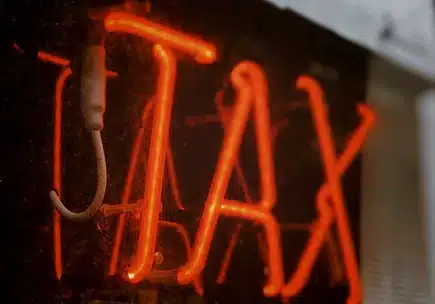
A Phil Hall Op-Ed: One of the most famous quotes to come out of the early 19th century was made by John Marshall, the first Chief Justice of the U.S. Supreme Court, in his 1819 ruling on the McCulloch v. Maryland case: “The power to tax is the power to destroy.” Fast-forward three centuries and Marshall’s warning is playing out in two once-great North American cities – and in both situations, the power focuses on abusing property owners with tremendous tax hikes.
Two weeks ago, we reported on the decision by the Toronto City Council to approve a 9.5% residential property tax hike, the largest of its kind in more than 25 years. The vote during a special budget meeting was based on the rate proposed by Mayor Olivia Chow – and she initially floated a 10.5% hike that she tried to spin as being “semi-modest.”
Chow’s goal with the tax hike was to keep Toronto functioning, which is no mean feat considering the city runs on an $1.8 billion deficit. When confronted with the historic nature of the tax hike, Chow sneered that city residents shouldn’t complain.
“Eighty cents extra a day, folks can afford it,” said Chow in a press conference. “Those that cannot will have a tax cancellation and tax deferral program to assist them.”
Chow’s words might come back to haunt her. The Toronto Star reported last week that nearly 8,300 homeowners who are either seniors or are living with a disability have successfully applied for Toronto’s property tax increase cancellation program in 2023 – that’s up by nearly 434% from the roughly 5,800 applications that were approved in pre-pandemic 2018. Applicants are required to have a household income $55,000 or less, and own a home that carries an assessed value of $975,000 or less.
But the pain from high property taxes isn’t exclusive to Toronto’s financially vulnerable homeowners. Mansion Global reported that Toronto began 2024 with a municipal land transfer tax hike on pricier properties. Instead of a 2.5% tax for any property over $3 million, the top rate was jacked up to 7.5% for homes worth more than $20 million. And if a buyer wants a $20 million house, they will need to pay the city a one-time transfer tax of $1.5 million – last year, that transfer tax was $500,000.
Not surprisingly, many house hunters who were considering property in Toronto are increasingly looking outside of the city where home prices and property taxes are much lower.
“The city buyers most affected by the tax increase are in the $3 million to $5 million segment, which is midrange for Toronto,” said Christina Clavero, managing director and sales representative at The Agency in the Toronto suburb of Oakville, in the Mansion Global coverage of Toronto. “They’re the ones feeling the pressure of high interest rates, since they’re typically financing homes. Add this new municipal land-transfer tax, and they may definitely re-evaluate buying in the city.”
Meanwhile in Chicago, Mayor Brandon Johnson is also pushing a massive property tax hike. Johnson’s so-called “Bring Chicago Home” initiative was added on the Chicago version of the March 19 Illinois primary election ballot, and that scheme is designed to generated more than $100 million a year for homelessness services by targeting both residential and commercial property owners. Under this initiative, properties sold for $1.5 million or more would be forced to pay a 3% transfer tax, which is four times the current rate.
Last Friday, a Cook County judge ordered the ballot referendum to be invalidated because it was phrased as part of a multipart question that mixed the tax hike with a proposed tax cut – a political trick known as “log-rolling.” While early voting has already begun with the referendum on the ballot, the votes will not be counted if the judge’s ruling stands.
As he has done too often, Johnson tries to change the subject from the ineptitude of his administration’s policies by invoking racial politics.
“We know that homelessness is up since 2019, and that Black Chicagoans account for 69% of our city’s unhoused population, and one in four Black students in the Chicago Public Schools, unfortunately, will experience homelessness at least once during their lives,” he said last November. “Bring Chicago Home is an important measure that I believe will help rectify this wrong.”
But Cornell Darden Jr., chairman of the Southland Black Chamber of Commerce, isn’t buying what Johnson is peddling.
“I think they just assumed that since the $1 million price tag was put on there, this is a rich person’s tax to help poor people,’” said Darden in a CBS News interview. “But we didn’t see it that way.”
Darden warned that property owners stuck with higher taxes would pass on the expense to their tenants, adding that “it can help increase the problem of homelessness by raising rental prices.”
Hopefully, other big cities will take heed at the bad policies happening in Toronto and Chicago and stop shaking down property owners. At the end of the day, these tax hikes will not address the financial woes impacting the cities, and the ill-will created by these hikes will last for a very long time.



